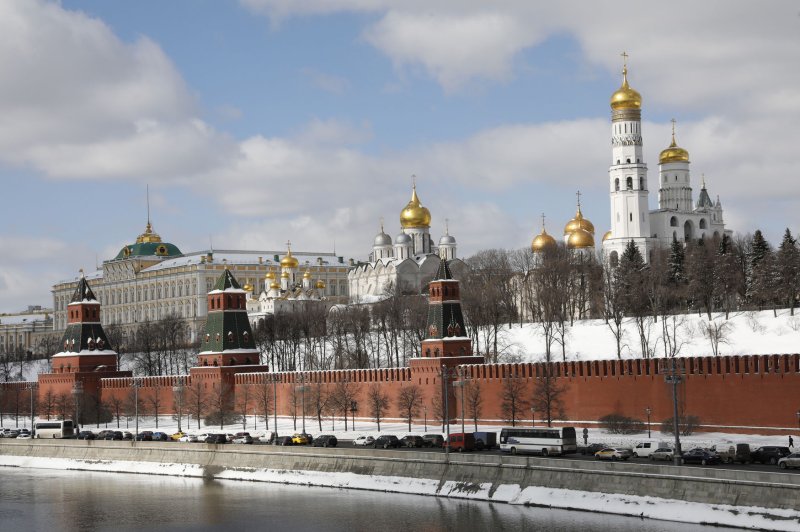Russia has positioned itself alongside Saudi Arabia as a major influence in the global oil market, a global analytics firm said. Photo by Yuri Gripas/UPI |
License Photo
June 28 (UPI) -- Following last week's pledge of more oil from OPEC, Russia is now standing next to Saudi Arabia as a major influence in the market, an analytics analyst said.
Russian Energy Minister Alexander Novak sits on a committee monitoring compliance for an effort steered by the Organization of Petroleum Exporting Countries to ensure an even-keeled market through coordinated production arrangements. With long-term issues in Venezuela, security challenges in Libya and uncertainty about the future for Iran, OPEC members pledged last week to put more oil on the market by easing back on compliance.
Compliance with the OPEC arrangement as of May was around 147 percent. New efforts would begin in July and could lead to an increase in global production levels of as much as 1 million barrels of oil per day.
Novak said during the weekend Russia could add about 175,000 barrels of oil per day in the second half of the year. Russia is the largest non-member state contributor to OPEC effort and few countries have the spare capacity available to respond to potential supply-side shocks.
Anna Belova, a senior analyst for oil and gas at analytics company GlobalData, said the OPEC-led decision to ease compliance with production arrangements was good for Russian oil companies Gazprom Neft, Lukoil and Rosneft, which have the capacity to add hundreds of thousands of barrels of oil to the market.
"The country's demonstrated ability to regulate its crude production makes it a key partner to Saudi Arabia in responding to global over-supply conditions," she said in a statement emailed to UPI.
OPEC's arrangement pulled millions of barrels off the market in early 2017 after a glut on the market pushed the price of oil below $30 per barrel. Brent, the global benchmark for the price of oil, was trading near $78 per barrel on Thursday.
The OPEC pledge last week fell short of market expectations given the prospects for a supply deficit of close to 2 million barrels per day. The U.S. State Department this week said it wanted to see Iran's oil customers cut imports to zero by November, though Tehran said that would be impossible given the amount of oil at stake.
Kirill Dmitriev, the CEO of the Russian Direct Investment Fund, said this week the coordination with Saudi Arabia, the de facto leader of OPEC, meant Russia was demonstrating a lead role in energy markets.
U.S. President Ronald Reagan called on Saudi Arabia to pump more oil during his tenure in the 1980s, tacitly to put pressure on the Soviet economy through lower oil prices.
Russia's economy lingered in recession in 2016 and the national currency, the ruble, declined in value after crude oil prices dipped below $30 per barrel. Anton Siluanov, a deputy finance minister, said this week that industrial production was accelerating along with real wages and growth this year should reach 2.1 percent.
At the current rate for Urals, the Russian benchmark for the price of oil, the extra barrels pledged b Novak would yield about $12 million per day.















